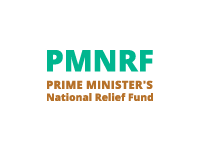Dr. Charu WaliKhanna, Member, NCW, Chief Guest at Workshop on “Sexual Harassment of Women at Workplace - The New Law Every Employer Must Know” at New Delhi
Dr. Charu WaliKhanna, Member, was Chief Guest at the Workshop on “Sexual Harassment of Women at Workplace - The New Law Every Employer Must Know” organised by Industrial Management Academy, at Hotel Taj Ambassador, New Delhi on 08.05.2014.
After delivering the inaugural address Member, Dr. Charu WaliKhanna made a presentation on the prevention of sexual harassment at the workplace. The member also updated participants comprising senior officers from various PSUs / organizations about the provisions of the Sexual Harassment of Women at Workplace (Prevention, Prohibition and Redressal) Act, 2013 and Rules, especially, the duties of an employer given in Section 19 (d to J) and Section 21 to 24 of the Act.
Dr. Charu WaliKhanna emphasised that for every employer / organization it is mandatory to constitute an Internal Complaints Committee for effective redressal mechanism, of which, not less than half of its members should be women. She said that it has been observed that most organizations / institutions have constituted an ICC, but it is not as per law and did not have the inclusion of a third party / NGO. She complemented the organizer for conducting this training programme since there is a lot of confusion on the procedure to be followed by the Members of the ICC while conducting inquiry into a complaint of sexual harassment. Rule 7 relating to manner of inquiry into complaint was discussed by the participants wherein, all felt that the rule clearly reflects the disconnect between the policy makers and those who implement the law. According to the rule it is mandatory for a complainant to submit 6 copies of the complaint alongwith supporting documents and the names and addresses of the witnesses. The question was raised as to whether this procedure of submitting 6 copies is practical or required and can an uneducated woman do the same without assistance of a lawyer whereas the same rule clearly states that the parties shall not be allowed to bring in any legal practitioner.
Dr. Charu WaliKhanna said that it is assumed that the Internal Complaints Committee(ICC) will be constituted by employers but what is more important is that the Members of the ICC should be trained on what procedure to follow during the inquiry. Further, there is no specific rule regarding training of the Members of the ICC/LCC. Training programmes are essential to sensitise/train members to recognise sexual harassment, deal with it when it occurs and prevent it. The training programme is the best way to ensure proper understanding and implementation of the Act. It is the best forum to communicate to employees what behaviour is acceptable and what is not, in a non-threatening atmosphere of mutual learning. Extensive orientation and training of the members of the ICC/LCC is essential for effective implementation of the Act. Their training should include a component of gender sensitization, along with the procedures for taking complaints, and for enquiry, etc.
The second day of the programme also included role playing of ICC Member by the participants so that they are familiarized with the process of complaint handling / conducting inquiry and other related procedures.
Other speakers included Shri K B Dayana, Director, Industrial Management Academy who further elaborated on the topic.




















